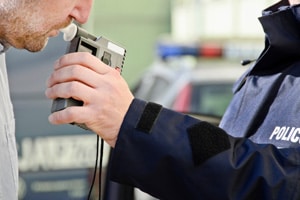How Do Sobriety Checkpoints Work in California?
 Sobriety Checkpoints
Sobriety Checkpoints
Sobriety checkpoints serve a vital role in curbing drunk driving on California roads. However, it’s crucial for every citizen to understand how they operate, the legality behind their establishment, and the rights of drivers subjected to such inspections.
At Dod Law, APC, we have established a reputation for providing exceptional legal representation for drivers facing potential penalties due to encounters at sobriety checkpoints. With comprehensive knowledge of California’s DUI laws and checkpoint guidelines, Dod Law, APC can assist clients in understanding their rights, navigating the legal process, and crafting robust defenses if charges are filed.
Assessing the Purpose and Constitutionality of Sobriety Checkpoints
The primary purpose of sobriety checkpoints is to deter and identify intoxicated drivers, thereby enhancing road safety. While the concept has faced criticism for potentially infringing on Fourth Amendment rights against unreasonable searches, the U.S. Supreme Court ruled to uphold their constitutionality in a 1990 ruling.
The Court reasoned that the intrusion on individual liberties was minimal compared to the significant public interest in curbing drunk driving. However, to ensure compliance with constitutional rights, certain guidelines were established.
Drivers cannot be detained longer than necessary, ensuring that their freedom of movement is minimally affected. Furthermore, the criteria for stopping drivers must be unbiased, and profiling is strictly prohibited. Also, a supervising officer must be present to make all constitutional decisions during the checkpoint operations, ensuring adherence to legal guidelines.
What are my rights at a sobriety Checkpoint in California
How Do Sobriety Checkpoints Work?
The California Supreme Court has laid down specific guidelines to regulate the proper operation of sobriety checkpoints. These include:
Supervisory Control over Checkpoint Operations
The responsibility of overseeing checkpoint operations lies with supervisory officers. They must ensure that every aspect of the checkpoint adheres to the established laws and guidelines. This oversight is crucial, as it directly impacts the constitutionality of the checkpoint. Their role includes ensuring that operations are performed with the highest degree of professionalism, respecting the rights of the motorists and maintaining public trust.
Neutrality in Stopping Motorists
One of the central tenets of sobriety checkpoints is the unbiased selection of drivers for inspection. This ensures that profiling, based on factors like race, age, or vehicle type, is not part of the process. Instead, officers may choose to stop every driver or use a predetermined sequence, such as every third or fifth vehicle.
Strategic Location of Checkpoints
The placement of sobriety checkpoints should be carefully considered. Officers must select locations where drunk driving incidents have been frequently reported or where accidents often occur. By doing so, they maximize the checkpoint’s effectiveness in deterring and identifying impaired drivers.
Ensuring Safety at Checkpoints
The safety of both officers and motorists is paramount during checkpoint operations. Officers must take adequate measures to ensure that the checkpoint does not become a hazard itself. This could involve using proper lighting, signage, and clearly marked lanes. Furthermore, officers must wear visible safety gear, and emergency medical services should be readily available in the case of any untoward incidents.
Judicious Timing and Duration of Checkpoints
The decision regarding the time and duration of a sobriety checkpoint should be based on careful consideration and sound judgment. Peak hours for drunk driving, such as late nights during weekends or holidays, are often chosen for maximum impact.
Clear Identification of Checkpoints
Checkpoints should be clearly identifiable as official operations. This can be accomplished through the use of uniformed officers, marked police vehicles, signage, and lighting.
Minimal Detention of Drivers
While checkpoints are necessary for public safety, it’s essential to respect drivers’ rights and time. Officers should keep driver detention to a minimum, sufficient only to ask a few brief questions and look for signs of impairment.
Public Notification of Checkpoints
Lastly, it’s required to provide advance public notice about upcoming sobriety checkpoints. This notification, often done through local media or law enforcement websites, serves to deter individuals from driving under the influence. It also gives motorists the chance to choose alternate routes and avoid potential delays caused by the checkpoint.
How Drivers Should Conduct Themselves at Sobriety Checkpoints
Avoiding a checkpoint doesn’t automatically warrant an officer stopping a driver. However, any traffic violation, defective vehicle equipment, or evident signs of intoxication can give the police probable cause to pull the driver over.
Upon arrival at a properly marked checkpoint, California Code requires drivers to stop and submit to the inspection. Additionally, drivers must produce their license and registration on request.
Drivers should remain calm, cooperative, and obey police orders to avoid any additional charges such as evading the police or resisting arrest. While drivers are obligated to provide identifying information, they are not required to divulge details of their travel or consumption of food or beverages.
Connect With the Skilled Team at Dod Law, APC Today
At Dod Law, APC, our experienced attorneys can provide personalized legal counsel and comprehensive representation to clients faced with sobriety checkpoint DUI charges. We will examine the intricate details of your case to identify the legal boundaries and procedures of sobriety checkpoints, making us the ideal choice for those navigating the complexities of the criminal justice system.
Our team has over 18 years of experience and will work hard to represent your claim. Contact us online or call us at our San Diego office (619) 814-5110 | Vista office 760-814-6025 to schedule your no-obligation consultation and get on the path to your defense today.
How To Get a DUI Dismissed
At a Glance
Meet Attorney Dod Ghassemkhani
- Recent Case Results
- San Diego Criminal Defense Bar Association | Named San Diego County’s 2023 Trial Lawyer Of The Year
- Award Winning Criminal Defense Attorney
- The National Trial Lawyers: Top 100 Trial Lawyers
- Over 20 years of criminal defense experience
- 10.0 “Superb” Avvo Rating
